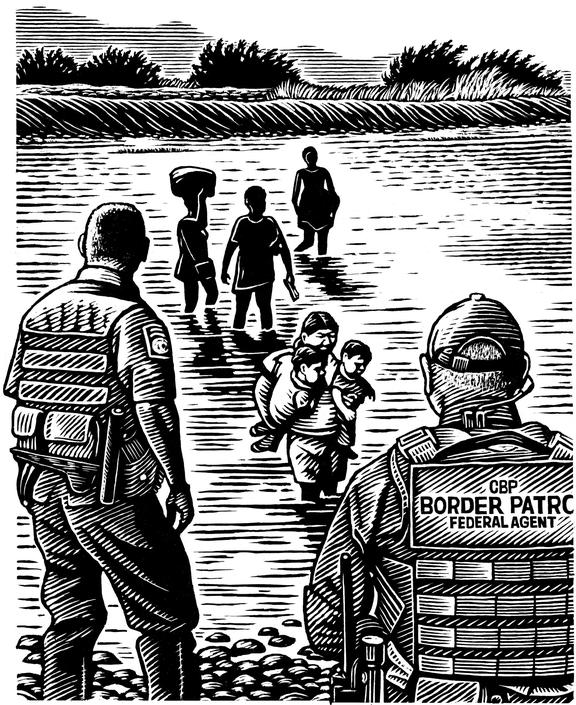God Save Texas: A Journey Into the Soul of the Lone Star State (32 page)
Read God Save Texas: A Journey Into the Soul of the Lone Star State Online
Authors: Lawrence Wright
Tags: #politics


went into effect after the 2017 legislative season. Among them: children under the age of sixteen will no longer be allowed to marry; faith-based adoption agencies will be permitted to deny placing children with gay parents; and Texans can now openly carry swords, a welcome development for the samurai in our midst.
Not addressed by the legislature was the low quality of education in Texas, which is near bottom nationally in most measures of overall achievement. Texas spends $10,000 a year per student—$2,500 below the national average—an indication of where education stands in terms of the state’s priorities. Racism may play a role in the steadily decreasing state support for public schools, but whatever the motivation, the workforce of the future has already been handicapped.
Texas also ranks low in terms of its infrastructure—the roads, dams, pipelines, parks, railroads, energy systems, wastewater treatment, and drinking water that modern civilization relies upon. It’s not just a matter of aging structures and poor maintenance. For a state that is projected to double in population in thirty years, Texas has done little to prepare itself. For all of the boldness that Texans often boast of, there is timidity about confronting the challenges in front of us. But that’s not the direction the social conservatives who rule the state are facing. They instinctively look backward, to a time when homosexuals were unseen, minorities were powerless, abortion was taboo, business and industry were largely unregulated, and science stood respectfully in the shadow of religious belief. Texas is not alone in its assault on diversity, nor in its determination to shove government out of civic life, but without high-quality education and modernized infrastructure the knowledge-based industries of the future will find other states, and other countries, in which to plant themselves. The refusal to face these challenges head-on seems to me not only imprudent but decidedly un-Texan.
Joe Straus received a vote of no-confidence by his own chapter of the Republican Party in San Antonio, a gesture repeated in a number of other caucuses in counties around the state. The ostensible reason was Straus’s failure to advance the Texas GOP platform. That platform includes demands that the U.S. government surrender all of its authority over abortion back to the states, and that until then federal laws permitting abortion be ignored; that U.S. senators be appointed by state legislatures, rather than elected by the citizens; that the IRS, Environmental Protection Agency, the Department of Education, and a number of other federal agencies be abolished or defunded; that traffic-enforcement cameras be removed; that a photo ID be required of all voters; that the U.S. Supreme Court ruling permitting gay marriage be overturned; that Social Security be phased out; that federal gun laws be ignored; that the Federal Reserve System be abolished and precious metals be reinstituted as the standard for the U.S. dollar; that the minimum-wage law be repealed; that the U.S. withdraw from the United Nations and from international trade agreements, such as NAFTA; and that a high border wall be built along the Mexican border, wherever it is deemed “effective and cost-efficient.” This document is a template for the future agenda of the Republican Party not just in Texas but in the nation.
Straus seemed to give the rebellion in the party caucuses little thought. He promised to run for a record-breaking sixth term as Speaker. Then, on the morning of October 25, he held an impromptu press conference in his office and announced that he would not seek another term. “I didn’t want to be one of those people who held on to an office just because he could,” Straus said. “There are new players and they deserve to have their voices heard.”
Perhaps he was bowing to the inevitable. The House Republican Caucus was pushing a plan that would allow them to designate the candidate for the post, making Democratic votes irrelevant. Straus’s enemies were exultant. “We did it!!! Speaker Straus is gone,” Jonathan Stickland tweeted. “The future of Texas has never looked brighter.” Julie McCarty, the president of the NE Tarrant County Tea Party, a statewide organization headquartered in Fort Worth, took credit for Straus’s departure. “No, I will not allow Straus to waltz off in celebrated thanks for his ‘service,’ ” she wrote on her Facebook page. “I will be David. I will mount Goliath’s head on a sword—the saber I was awarded by Empower Texans for being a grassroots hero—and I will dance! I will display this victory for all to see, for the birds to peck at, for my fellow warriors to recognize God’s hand in delivering our enemy and to be motivated that God is not done yet, for others who wish to follow in Goliath’s footsteps to be warned what awaits them.”

exico defines Texas in a way that no other state experiences with any other nation. We are like a couple still living next door to each other after a particularly bitter divorce. Imagine the wealth and power that would have been Mexico’s had Texas remained a part of it—a genuine rival to the gringo colossus. Our history and our populations are intermingled and complexly mirror each other. You’ll find paired cities strung like beads on either side of the river: Del Rio and Ciudad Acuña, Laredo and Nuevo Laredo, McAllen and Reynosa, Brownsville and Matamoros. El Paso and Juárez are the ones most closely aligned. El Paso Street crosses the international bridge and becomes Avenida Benito Juárez. Physically, it’s one city, straddling a political and cultural divide that has never been bridged.
Octavio Paz, the great Mexican poet, once cataloged the differences he observed between his country and mine. “The North Americans are credulous and we are believers; they love fairy tales and detective stories and we love myths and legends,” Paz writes. “They are optimists and we are nihilists—except that our nihilism is not intellectual but instinctive, and therefore irrefutable. We are suspicious and they are trusting. We are sorrowful and sarcastic and they are happy and full of jokes. North Americans want to understand and we want to contemplate. They are activists and we are quietists; we enjoy our wounds and they enjoy their inventions.”
There is another distinction that Paz draws—this one between the North American’s avoidance of death and the Mexican’s willingness to contemplate horror: “The bloody Christs in our village churches, the macabre humor in some of our newspaper headlines, our wakes, the custom of eating skull-shaped cakes and candies on the Day of the Dead, are habits inherited from the Indians and the Spaniards and are now an inseparable part of our being.”
The first time I went to Mexico was on a family trip to the little fishing village of Topolobampo, on the Pacific Ocean, in the state of Sinaloa. We flew to El Paso, then caught a bus to Chihuahua City, and from there took the train across Copper Canyon, in the heart of Tarahumara Indian country. I was sixteen; my sisters, Kathleen and Rosalind, were fourteen and eleven. This was the summer after the Kennedy assassination. I remember that because when we were at dinner one night in Mexico an American couple at the table next to us overheard us talking about Texas, and asked where in Texas we were from. When Daddy said, “Dallas,” they got up and just left their meal sitting there.
Before the trip, I had a startling nightmare, one of the worst dreams I’ve ever had in my life. I was on an airplane, and suddenly I was floating above my seat. I looked around to find my mother, and saw her head come off. The next morning, I was sufficiently upset to tell Kathy and Roz about it. None of us had ever had a dream come true, and anyway we were children, and what did we know about Mexico? So we went.
On the way home, we retraced our steps, catching the train again at Los Mochis and crossing the Sierras to Chihuahua. Then we got on the bus to Juárez.
I was trying to nap, with my head against the window. The road was empty and the monotonous bleached landscape stretched out from nowhere to nowhere. It started sprinkling, and the drops shot across the windowpane like bullets. We were going really fast.
The road was wet, and when the driver came to a curve he didn’t even begin to make it. Suddenly, we were off the road, bouncing in our seats. Weirdly, the driver never slowed down. I heard later that he was sixty-five years old and had had his license for only two weeks, which might have accounted for the fact that he didn’t simply stop and back up. Instead, he tried to navigate the bus back to the road, in a big loop through a field, going at the same wild clip, flying past cactus and over boulders. Ahead was a bridge crossing a dry arroyo. There was a slanted concrete abutment at the base of the bridge, which the driver hit, launching the bus into the air.
It was then, as I was hurled into the luggage rack, that I looked back and saw my mother’s wig come off.
The bus flew across the road and landed with such force that everyone over thirty broke their backs. My sisters and I were the youngest passengers, and although we were shaken, we were able to stand and walk.
We were in the middle of the Chihuahuan Desert. There were maybe forty injured passengers. No cars on the road, no way to call an ambulance, nothing to do but wait for the next bus.
The adults were splayed out on the floor or on their seats, groaning in pain. Daddy was stoic, but I could see he was suffering. My mother had also broken her breastbone and was gasping for breath. The driver was the most gravely injured. I later heard he went to prison. When the next scheduled bus finally came, about four hours later, we rode another hundred miles or so to Juárez, every bump in the road eliciting agonized choruses from the wounded passengers. It was sobering to hear the adults weeping. I didn’t speak Spanish at the time, and I didn’t understand why the police wouldn’t let us take our parents to the hospital in El Paso. It turned out that accidents are often treated as crimes in Mexico, and we were all being held as witnesses.

